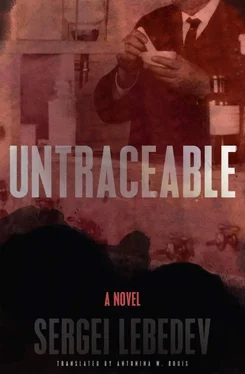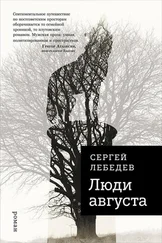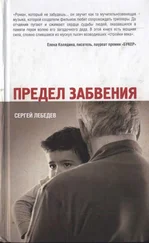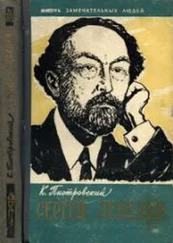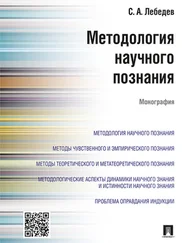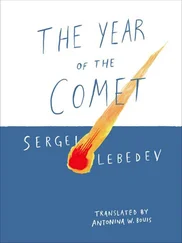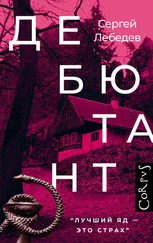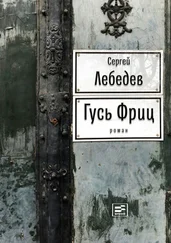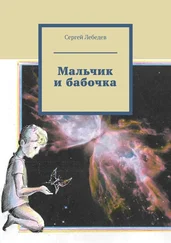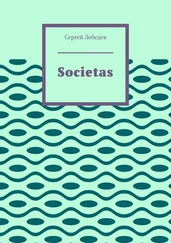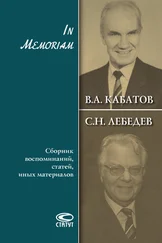Сергей Лебедев - Untraceable
Здесь есть возможность читать онлайн «Сергей Лебедев - Untraceable» весь текст электронной книги совершенно бесплатно (целиком полную версию без сокращений). В некоторых случаях можно слушать аудио, скачать через торрент в формате fb2 и присутствует краткое содержание. Город: New York, Год выпуска: 2021, ISBN: 2021, Издательство: New Vessel Press, Жанр: Современная проза, на английском языке. Описание произведения, (предисловие) а так же отзывы посетителей доступны на портале библиотеки ЛибКат.
- Название:Untraceable
- Автор:
- Издательство:New Vessel Press
- Жанр:
- Год:2021
- Город:New York
- ISBN:978-1-939931-90-0
- Рейтинг книги:3 / 5. Голосов: 1
-
Избранное:Добавить в избранное
- Отзывы:
-
Ваша оценка:
- 60
- 1
- 2
- 3
- 4
- 5
Untraceable: краткое содержание, описание и аннотация
Предлагаем к чтению аннотацию, описание, краткое содержание или предисловие (зависит от того, что написал сам автор книги «Untraceable»). Если вы не нашли необходимую информацию о книге — напишите в комментариях, мы постараемся отыскать её.
Untraceable — читать онлайн бесплатно полную книгу (весь текст) целиком
Ниже представлен текст книги, разбитый по страницам. Система сохранения места последней прочитанной страницы, позволяет с удобством читать онлайн бесплатно книгу «Untraceable», без необходимости каждый раз заново искать на чём Вы остановились. Поставьте закладку, и сможете в любой момент перейти на страницу, на которой закончили чтение.
Интервал:
Закладка:
The boy already understood how life worked in the City and had categorized all the people he knew. Fortunately the City’s organization made it easy. In the center, behind a second Wall, was the Institute where his father worked. All the residents—guards, cleaning women, carpenters, drivers, scientists, shop clerks, teachers, doctors at the hospital, like his mother—served the Institute directly or indirectly.
Only Uncle Igor’s role was unclear.
Not military, not civilian; none of the recognizable, tested types. Separate. Sui generis.
He was the only one who lived as if there were no City, Institute, Wall, commandant’s office; no red flags, banners, demonstrations, posters calling for vigilance, or watchtowers.
The boy guessed that he did not see, did not know the main truth about Uncle Igor, which explained his special position. The boy could assume that Uncle Igor’s work was secret, like his father’s, for example. Or even more secret. But the point was that all the adults privy to secrets shared habits, jokes, and little words that Uncle Igor did not. Most important, they lived, like his father, with a sense of borrowed significance that gave them access, and they were afraid of losing it. Uncle Igor was on his own. The boy wanted that kind of unencumbered, independent fate for himself.
For Easter, Uncle Igor’s table was laid with a long linen cloth embroidered with proverbs written in an old-fashioned script. On it stood a candelabrum for twelve candles and dark green shot glasses rimmed in gold. Uncle Igor took down an old guitar from the wall: the maker’s mark glittered gold in a circle beneath the strings.
Uncle Igor, as small as a child—he needed a cushion on the chair—thin, with long gray hair, as luxurious as a woman’s, in a gray jacket of fine wool and a white shirt, looked like an actor, a bit of a magician, who knew how to enliven things. The glasses and cutlery in the hands of his guests seemed to be drawing a design, creating something that they were unaware of, not realizing that they were merely stand-ins for another gathering.
Uncle Igor orchestrated the flow of conversation without any effort. The boy noticed how his father, usually unsociable, sat straighter and grew animated, how his mother grew lovelier, how the other guests relaxed, as if Uncle Igor were brushing them with a cheery gloss, an exciting glow, teaching them to appreciate once again the taste of food, the spiciness of spice and the saltiness of salt. Not a word about laboratories, state commissions, tests, aggregates, bonuses, formulas, equations, military acceptance, subcontractors—the adults didn’t really know what else they could talk about, so their embarrassment was amusing, and they drank more wine or vodka. Uncle Igor played the guitar and sang songs that the boy had never encountered anywhere else, and then he turned on the record player, and dance melodies flew from the black lacquer records and spun in the air, so foreign that he thought he was hearing not music but the voice of the record itself composed of an unnatural, implausible substance.
Once the dancing began the children were sent off to play. That was what the boy had been waiting for. They played hide-and-seek, ever since he was little: only Uncle Igor’s apartment had enough hiding places for them truly to hide and seek, for a long time and without giveaways.
The children were older now and kept up the old custom reluctantly, seemingly out of boredom. However, in fact, the game had a new meaning now: the boys listened to the girls’ breathing, the girls hidden behind drapes, sometimes hopping in order to be found. In the dimly lit rooms, their first feelings arose. Only one room, at the far end of the corridor, was always locked.
The boy liked these hours of play. He hid better than the others, he could remain unnoticed in full view. The girls’ silhouettes did not excite him; his lust was for something different.
The person hiding sees space inside out, with the eyes of subjects, walls, photographs. He tries to merge with the place, become part of it. For him, hide-and-seek was merely the prologue to a voyage, immersion in the attractive otherness, the life of and space inhabited by Uncle Igor.
He held his breath, surrounded by things that had lost their corporeality, had turned into velvet ghosts, that might speak in the dark, convey something tactile. The distant locked room did not interest him; he did not think that Uncle Igor could have literal secrets hidden behind the door. Besides, he did not want to uncover some part of his hidden life; he wanted to know his everyday existence, his dashing, undisguised freedom of action and opinion, his ability to live without fear, treat everyone independently and at the same time be needed and universally respected.
They played for a long time that evening. The thrill was gone. Hiding one more time, the boy noticed that the usually locked door was ajar, weak light coming through the crack.
The sudden sense that this was no accident made him catch his breath.
“I’ll just peek in,” the boy told himself. “Just a peek, that’s all.”
The desk lamp was on. Probably Uncle Igor or the help left it on and forgot to come back in the flurry of holiday preparations. Its light, so personal, secret, the setting of Uncle Igor’s solitude and thoughts, beckoned irresistibly.
“I wasn’t told not to go in here,” thought the boy. “I’ll say we were playing hide-and-seek. The door was ajar.”
He walked around the room slowly, attentively looking at the cupboards, bookshelves, desk. A grandfather clock ticked loudly in the corner, marking the brief time he could spend here unnoticed.
He wanted to leave and took three steps toward the door; he grew anxious. He realized that all the books here were about chemistry. The same ones that his father had. But Uncle Igor had more books; his father knew only German and here there were volumes in English and French. The boy took one off the shelf—yes, the same stamp of the Institute library.
His father, when he worked at home, cleared his desk when he was done. If the boy needed to come into his room, he knocked first, and his father turned the work pages over. Uncle Igor left his desk as if he had walked out for a minute: tea in a glass, a viciously sharpened pencil on top of the pages. Typed pages, heavy honeycombs of formulas speckled with corrections.
The boy turned away. He felt a mix of disappointment and vague hope. Uncle Igor could not be his father’s colleague. Yet he was. The books were evidence that he was merely a civil scientist, one of hundreds in the City.
Suddenly the boy noticed a small triangle of fabric that stuck out of the doors of the clothes closet, like the corner of a bookmark. Military green. With embroidered gold leaves. A sleeve, probably.
The boy pulled on the end but the doors were shut tight.
“I’ll say that I wanted to hide in the closet,” he decided. “They didn’t forbid it.”
The boy slowly opened the doors.
The bulb in the closet glowed like a treasure hunter’s torch in a cave.
The gold embroidery blazed. The buttons were golden flashes. The orders shimmered in gold, scarlet, steel, and silver; the orders and stars made of blood-red enamel, the gray steel hammers and sickles, plows and bayonets, a soldier with a rifle; gold sheaves and leaves, the gold letters of LENIN .
A uniform hung in the closet. Covered in the heavy, round, scalelike discs of orders and medals from chest to navel. A major general’s lonely big stars sparkled on the shoulder boards.
The uniform was small, almost a child’s, just right for Uncle Igor. Without the awards it might have looked comical. But the golden, ruby, and sapphire reflections imbued it with supernatural might. The boy could not imagine what a man had to do to earn so many awards. Was he even a man? A hero? A higher being?
Читать дальшеИнтервал:
Закладка:
Похожие книги на «Untraceable»
Представляем Вашему вниманию похожие книги на «Untraceable» списком для выбора. Мы отобрали схожую по названию и смыслу литературу в надежде предоставить читателям больше вариантов отыскать новые, интересные, ещё непрочитанные произведения.
Обсуждение, отзывы о книге «Untraceable» и просто собственные мнения читателей. Оставьте ваши комментарии, напишите, что Вы думаете о произведении, его смысле или главных героях. Укажите что конкретно понравилось, а что нет, и почему Вы так считаете.
